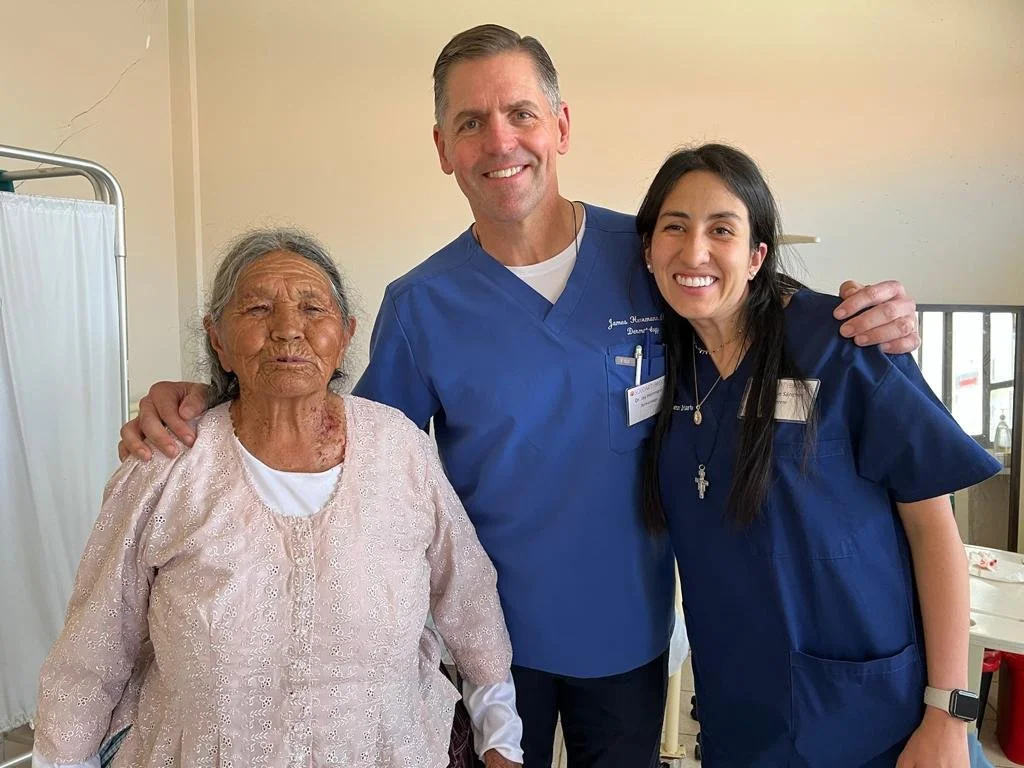Amid our long-term goals and strategies, the day-to-day work of Solidarity Bridge always comes back to serving the needs of the patient in front of us. Each brings a unique story, and it is a gift to be invited to be a part of it. For both our patients and ourselves, these encounters can be fraught with heartache, but are also a source of great joy
Read MoreBolivian doctors interested in pursuing sub-specialized training such as oncological surgery have very limited training options in-country. Our mission trip offers an opportunity for these doctors to operate alongside a surgeon who has performed thousands of the most difficult pancreatic and hepatobiliary surgical procedures.
Read MoreFrom virtual lectures to hands-on practice, our two day Spinal Surgery Workshop gave more than 25 neurosurgical residents from Bolivia and Paraguay an opportunity to advance their skills.
Read MoreDaniela has two beautiful children, both born with congenital heart defects. Their symptoms are treatable through surgery, but for her family living on a modest income, the care they needed was beyond their means.
Read MoreSolidarity Bridge partner Dr. Bianca Becerra, a Bolivian neuro-anesthesiologist committed to improving access to trauma care, named Global Health Fellow at the annual conference of the American Society of Anesthesiologists (ASA).
Read MoreJosé was the first of six patients with complex neurosurgical conditions operated this week at the Santa Bárbara Hospital in Sucre, Bolivia. These surgeries are part of a long-term effort drawing on the contributions of local and U.S. neurosurgeons, neuro-anesthesiologists, neuro-intensivists, and neuro-rehabilitation specialists toward a vision of establishing the Santa Bárbara Hospital as a premier neurotrauma center.
Read MoreEndoscopic transnasal surgery uses a tiny camera through the nose to remove tumors from the pituitary gland and skull base. U.S. neurosurgeon Richard Moser and Bolivian ENT Patricia Arteaga delivered a comprehensive course for 11 doctors eager to learn the technique.
Read MoreThe women we care for are themselves caregivers—they are mothers, they are daughters, they have jobs that put food on the table. Until this trip, I never fully understood the profound difference that access to minimally invasive laparoscopic surgery can make in allowing a patient to pursue treatment.
Read MoreSolidarity Bridge and Puente de Solidaridad are two sides of the same coin, both promoting solidarity as central to who we are and why we do what we do.
Read MoreReturning to the Chuquisaqueño Cancer Institute this week, our goal is to leave the hospital team prepared to independently perform laparoscopic hysterectomies going forward.
Across five specialties, our U.S. missioners have been working with their Bolivian colleagues to learn from one another and collaborate in making life better for our patients and the wider community.
Read MoreMSMT changes lives by providing specialized care that is otherwise unavailable to patients at rural Bolivian hospitals.
Read MoreIn order to truly enter into the work that brings us to Bolivia —the care of patients in need— we must be present, we must listen, and we must stand in solidarity with the patients and all who work so hard to give them life-transforming care.
Read MoreMission trips constitute only one aspect of our year-round work, but these visits provide unique opportunities to expand our minds and hearts.
Read MoreA decade ago, there was very little access to endoscopic pituitary surgery in Bolivia, regardless of a patient’s economic status. Today, access to these procedures has grown and expanded across the country.
Read More














